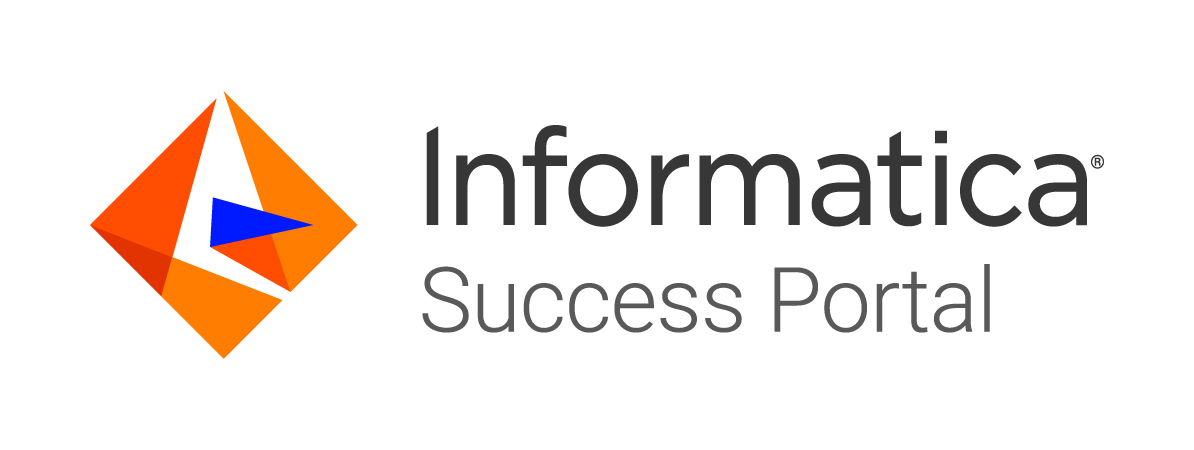-
Success
Manage your Success Plans and Engagements, gain key insights into your implementation journey, and collaborate with your CSMsSuccessAccelerate your Purchase to Value engaging with Informatica Architects for Customer SuccessAll your Engagements at one place
-
Communities
A collaborative platform to connect and grow with like-minded Informaticans across the globeCommunitiesConnect and collaborate with Informatica experts and championsHave a question? Start a Discussion and get immediate answers you are looking forCustomer-organized groups that meet online and in-person. Join today to network, share ideas, and get tips on how to get the most out of Informatica
-
Knowledge Center
Troubleshooting documents, product guides, how to videos, best practices, and moreKnowledge CenterOne-stop self-service portal for solutions, FAQs, Whitepapers, How Tos, Videos, and moreVideo channel for step-by-step instructions to use our products, best practices, troubleshooting tips, and much moreInformation library of the latest product documentsBest practices and use cases from the Implementation team
-
Learn
Rich resources to help you leverage full capabilities of our productsLearnRole-based training programs for the best ROIGet certified on Informatica products. Free, Foundation, or ProfessionalFree and unlimited modules based on your expertise level and journeySelf-guided, intuitive experience platform for outcome-focused product capabilities and use cases
-
Resources
Library of content to help you leverage the best of Informatica productsResourcesMost popular webinars on product architecture, best practices, and moreProduct Availability Matrix statements of Informatica productsMonthly support newsletterInformatica Support Guide and Statements, Quick Start Guides, and Cloud Product Description ScheduleEnd of Life statements of Informatica products
- Velocity
- Strategy
-
Solutions
-
Stages
Following a rigorous methodology is key to delivering customer satisfaction and expanding analytics use cases across the business.

-
More
-
Success
Manage your Success Plans and Engagements, gain key insights into your implementation journey, and collaborate with your CSMsAccelerate your Purchase to Value engaging with Informatica Architects for Customer SuccessAll your Engagements at one place
-
Communities
A collaborative platform to connect and grow with like-minded Informaticans across the globeConnect and collaborate with Informatica experts and championsHave a question? Start a Discussion and get immediate answers you are looking forCustomer-organized groups that meet online and in-person. Join today to network, share ideas, and get tips on how to get the most out of Informatica
-
Knowledge Center
Troubleshooting documents, product guides, how to videos, best practices, and moreOne-stop self-service portal for solutions, FAQs, Whitepapers, How Tos, Videos, and moreVideo channel for step-by-step instructions to use our products, best practices, troubleshooting tips, and much moreInformation library of the latest product documentsBest practices and use cases from the Implementation team
-
Learn
Rich resources to help you leverage full capabilities of our productsRole-based training programs for the best ROIGet certified on Informatica products. Free, Foundation, or ProfessionalFree and unlimited modules based on your expertise level and journeySelf-guided, intuitive experience platform for outcome-focused product capabilities and use cases
-
Resources
Library of content to help you leverage the best of Informatica productsMost popular webinars on product architecture, best practices, and moreProduct Availability Matrix statements of Informatica productsMonthly support newsletterInformatica Support Guide and Statements, Quick Start Guides, and Cloud Product Description ScheduleEnd of Life statements of Informatica products
-
Success
Metadata Manager
Data Governance & Privacy
The Metadata Manager's primary role is to serve as the central point of contact for all corporate metadata management. This role involves setting the company's metadata strategy, developing standards with the data administration group, determining metadata points of integration between disparate systems, and ensuring the ability to deliver metadata to business and technical users. The Metadata Manager is required to work across business and technical groups to ensure that consistent metadata standards are followed in all existing applications as well as in new development. The Metadata Manager also monitors the Informatica Platform’s metadata management components to ensure proper usage and consistency in deployment.
Responsibilities
- Formulates and implements the metadata strategy.
- Captures and integrates metadata from heterogeneous metadata sources.
- Implements and governs best practices relating to enterprise metadata management standards.
- Determines metadata points of integration between disparate systems.
- Ensures the ability to deliver metadata to business and technical users.
- Monitors development and production repositories for accuracy and metadata consistency.
- Identifies and profiles data sources to populate metadata repositories, including Domain curation to eliminate false positives and false negatives.
- Continuously assesses business and technical requirements of metadata information.
- Designs metadata repository models.
- Utilizes and manages metadata tools and solutions, including scheduling of regular scans on a periodic basis and ad-hoc scans as needed.
- Assists in identifying and defining business glossary terms.
- Instructing end users in the organization-specific metadata solution
Qualifications/Certifications
- Business sector experience is essential.
- SME in source system data design.
- Experience in implementing and managing a repository environment.
- Experience in data modeling (relational and dimensional).
- Experience in using repository tools.
- Solid knowledge of general data architecture concepts, standards, and best practices.
- Strong analytical skills.
- Excellent communication skills, both written and verbal.
- Proven ability to work effectively with both business users and technical stakeholders.
- Understanding of corporate IT security policies.
- Understanding of applicable data governance policies.
